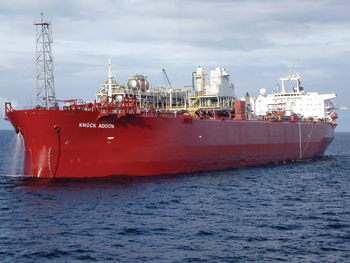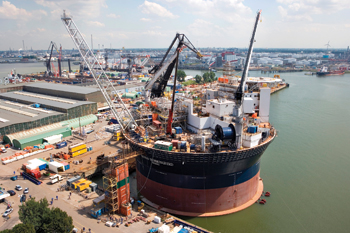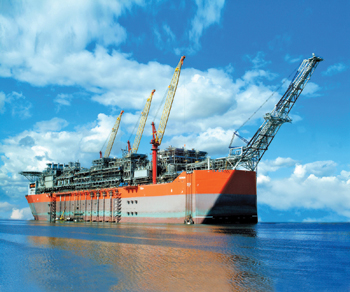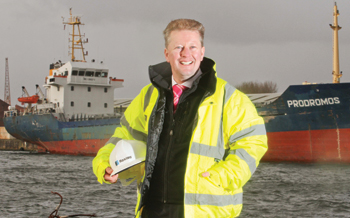

SINGAPORE’S Keppel Corporation has announced that wholly-owned subsidiaries of its unit Keppel Offshore & Marine Ltd – Keppel Shipyard Ltd and Keppel Singmarine Pte Ltd – have secured contracts worth a total of $294.32 million (SGD 368 million).
Keppel Shipyard bagged a contract to convert a floating production storage and offloading (FPSO) vessel for Armada Kraken, a wholly owned subsidiary of Malaysia’s Bumi Armada Berhad. The new FPSO will be a harsh-environment unit designed for operations in the North Sea under a stringent regulatory regime.
Conversion work has commenced and the FPSO is scheduled for delivery in the third quarter (3Q) 2015. When completed, the FPSO will be capable of producing the heavy-oil (API degree 14) in the Kraken field in the UK sector of the North Sea, over a period of 25 years.
The FPSO, which has a storage capacity of 600,000 barrels, will have a peak fluid rate of 460,000 barrels per day (bpd) and 80,000 barrels of oil per day (bopd), 275,000 bpd of water injection, 20 million standard cubic feet (mmscf) of gas handling and has a storage capacity of 600,000 barrels.
The work scope for this FPSO project includes refurbishment and life extension works, upgrading of living quarters to accommodate 90 personnel, installation of an internal turret mooring system as well as the installation and integration of topside process modules.
“We are pleased to be entrusted once again by our longstanding customer Bumi Armada to be part of their significant FPSO Armada Kraken project ... We are seeing an increasing demand for more sophisticated FPSOs which can operate in harsher environments, more challenging and deeper oil and gas fields,” Michael Chia, Keppel O&M’s managing director (Marine & Technology) says in a press release.
 |
Keppel land Kraken FPSO deal |
Separately, Keppel Singmarine clinched a deal from Baku Shipyard to design, fabricate and outfit a subsea construction vessel (SCV) which, upon completion, will be deployed for the Stage 2 development of the Shah Deniz field located some 43.4 miles (70 km) offshore in the Azerbaijan sector of the Caspian Sea.
The SCV is a project that Baku Shipyard secured from BP Exploration (Shah Deniz) Ltd, the operator of the Shah Deniz gas field development. It is the first major contract secured by the shipyard since its inauguration by President of Azerbaijan, Ilham Aliyev, in September 2013.
Baku Shipyard, located in Baku, Azerbaijan, was jointly developed by Keppel O&M, State Oil Company of Azerbaijan Republic (Socar) and Azerbaijan Investment Company (AIC). Keppel O&M, Socar and AIC own 10 per cent, 65 per cent and 25 per cent share in the yard respectively. Keppel O&M is responsible for the management and operation of the yard.
Keppel Singmarine’s work scope includes the design of the vessel, the fabrication of the hull strips and outfitting them with equipment and systems at its yard in Singapore. The hull strips will be shipped to Baku Shipyard for integration with other components fabricated by Baku Shipyard, and completion after commissioning works and sea trials. The SCV will be built to the proprietary design by Marine Technology Development, the ship design and development arm of Keppel O&M.
When operational, the SCV will provide support for the construction of subsea structures which will form the biggest subsea production system in the Caspian. Designed to work in 8.2 ft (2.5 m) significant wave height (Hs), the vessel will be equipped with a dynamic positioning system, a 750-metric ton heave compensated crane for 1,968.5 ft- (600 m-) deep subsea operation, an 18-men two-bell diving system and two work-class remotely operated vehicles.
“The Shah Deniz gas field development is a major project for Azerbaijan, and we are proud to be involved in the design and construction of the SCV, the country’s flagship vessel for the development ... As the first major contract for Baku Shipyard, a yard that Keppel has invested in and manages, the project also marks a significant milestone for Keppel as we continue to extend our Near Market, Near Customer strategy to bring our innovative solutions to the Caspian region,” Chia adds.











































































